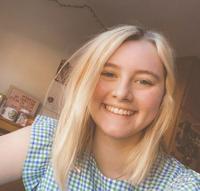By Sydney Byerly, TheStatehouseFile.com
- Â
I’m 21 years old, and I still go to a pediatrician. I have no prescriptions. I’m in college, so it’s hard finding time to go to the doctor, so I can’t remember the last time I saw mine.
I knew Medicare was insurance, and I knew there were parts, but I didn’t know what any of the parts were or what the coverage was for.
So when my editor asked me to write about Medicare Open Enrollment starting soon and a state government program to help people filing for Medicare, I thought, Oh geez. I gotta go do some research before I start this thing.
Turns out Medicare currently provides health insurance coverage to more than 65 million people in the U.S., including 57 million older adults and nearly 8 million younger adults with disabilities. In Indiana, more than 1.3 million residents are enrolled in Medicare.
However, a SingleCare survey polling 1,500 Americans found that 34% aren’t familiar with Medicare at all—just like me. Sixty-five percent reportedly would not know which part(s) of Medicare they should enroll in.

Sydney Byerly.
I knew from overhearing family talk over the years that you become eligible around 65, or younger if you are disabled. What I didn’t know was what the process looked like.
In my research, I found there are four parts—A, B, C and D—and what part you sign up for can vastly change what’s covered and how much you pay. Each plan may come with a monthly premium, out-of-pocket costs and rules that can change from year to year.
This was already overwhelming to me, so I called my friend’s grandpa to learn more about what applying is like.
Gerald Davis, a former higher-up with a casket and urn company and an East Central Indiana resident, told me that he and his wife had to learn too when deciding which plan to go with when they first filed three years ago.
“The first thing we learned is that there’s a lot of information out there that is incredibly mind blowing, confusing,†he said. “Insurance is complex enough anyway, but with Medicare-name-the-part, there’s an alphabet of parts you can buy.â€
Davis said while he and his wife may not “have all the bells and whistles†with their plan, they were able to figure out the best choice for them by talking with friends. Now the couple auto-renews their plan each year because he says it can be a hassle to go shopping and rethink it all over again.
“It is incredibly complex. You get a booklet that’s, you know, loaded with information,†Davis said. “I’m sure it’s simple to somebody but just not to most consumers. I think most would be very challenged to try to understand that.â€
Davis said even with all its complexities, he’s thankful for Medicare because, with his health issues in the last year, he’s still paying less than he did under his employer’s insurance before he retired.

Ann Carr, a Southern Indiana resident and volunteer at American Legion Post 42, sits for a photo with a skeleton beside her during the group’s annual Trunk-or-Treat event. Ironic photo for an article about Medicare, but … also adorable.
Next I talked to my Mamaw’s friend, Ann Carr from Southern Indiana, who volunteers at the American Legion post with her. She talked with me about what the experience was like for her filing almost 12 years ago.
Carr said at the time, she didn’t know much about Medicare, so she reached out to an insurance agent friend who connected her with someone who could help.
“I went to her office and I sat down with her, and she went through what the options were, so we didn’t use any of the tools that the state may or may not have had available at that time [because I didn’t know of any],†she said.
Years later, Carr tried to go back and ask about switching her plan, and the lady was no longer in business, so she ended up sticking with her original one.
“I have never changed it because one of the things that she said to me was, if you’re eligible for the original Medicare and get on it, don’t ever drop it because you can’t get it back … It’s the best plan that you could have. But now, I’m actually beginning to wonder, well, is that true? I don’t know,†she said.
Sometimes Carr worries her friends have been coaxed into taking the wrong plan or that she might not be on the best plan anymore because she doesn’t have all of the information.
It can be confusing—even the experts say that.
Which is why the Indiana Department of Insurance (IDOI)’s State Health Insurance Assistance Program (SHIP) has started its statewide virtual and on-site presentations and events to help Hoosiers prepare for open enrollment, which starts Oct. 15 and continues until Dec. 7.
A SHIP press release said, “The careful evaluation of Medicare Advantage options is imperative because plans may have different benefits, out-of-pocket costs, covered prescription drugs, in-network physicians, and premiums each year.â€
SHIP is a free, impartial counseling program, and it is staffed by more than 400 trained volunteers certified by the IDOI and provided by the Administration for Community Living and IDOI since 2021.
There are more than 100 SHIP sites around the state, and SHIP also provides training for other agencies that serve people with Medicare. So instead of calling on friends to learn like I did, you can reach out to an expert by using the hotline or attending a presentation. For more information about the program’s events around the state, visit the Indiana Department of Insurance webpage.
While it may be 40-plus years from now when I apply for Medicare, I’m glad I researched because my new friend Ann said, now that she knows about the program, she may ask SHIP to speak at American Legion Post 42 sometime soon.





